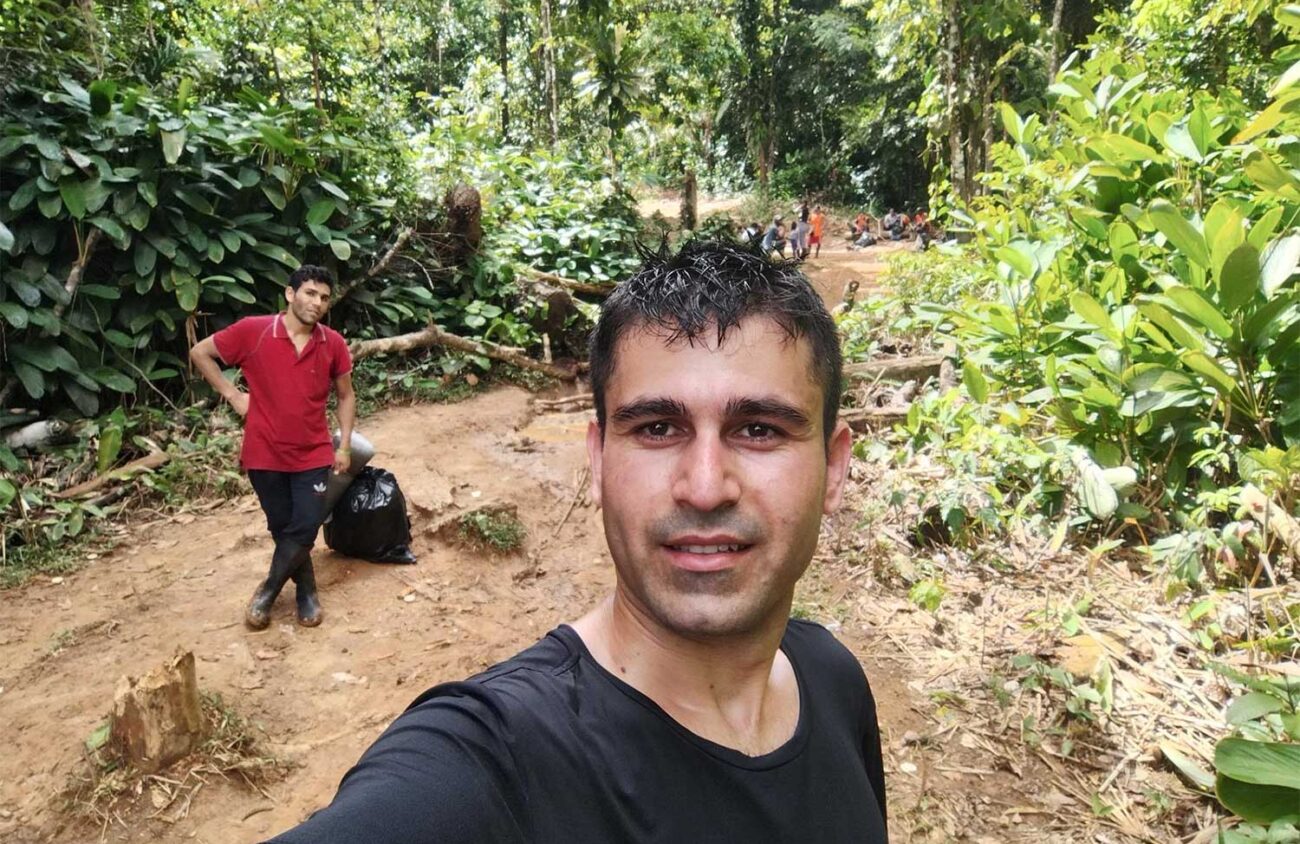By Nasrat Ibrahimi
I was born in Afghanistan in 1995 — the same year as the Taliban.
The radical Islamic group seized power rapidly. In cooperation with Al-Qaeda terrorists, it controlled 90 percent of the country by 1998.
Opposition groups still controlled Takhar Province in northeast Afghanistan, however. This is where my family lived, in a rural community of mud houses. We were farmers, growing legumes and fruit, and raising animals.
Still, the war came to us. I grew up under a rain of gunfire and rockets from both sides. Our legumes and fruit trees were trampled, our fertile land seeded instead with bullets. The withered flowers of our garden smelled of gunpowder and smoke.
When a blind Taliban rocket hit our house and killed my aunt’s husband, we left our land and animals and fled to my grandfather’s village high on a rocky mountain. It was the first time I was displaced.
We lived on dry bread and Kokcha River water, but my father would take me higher up the mountain to pick up the Persian BBC News on his old radio. I will never forget him explaining the news events to me; his deep, sad face covered in dust.
He said years of war had caused the country to lose its foundation, that death, poverty and migration had become the daily concerns of the people. “Everything speaks of violence and misery,” he said.
When the United States and other countries invaded Afghanistan in 2001, the Taliban retreated and freedoms were restored. I could pursue my own dreams, which included studying and becoming a journalist.
I enrolled in school and got acquainted with pen, paper and books. Over time, I got acquainted with novels. Colombian author Gabriel García Márquez became one of my favorites.
At 15, I began presenting children’s programming on a Takhar radio station. Eventually, I became a television news anchor in Kabul, where my wife, Suraya, was also a journalist. After studying law, I became a spokesman and media advisor for the vice president of Afghanistan.
Then the U.S. coalition withdrew, and the country fell to the Taliban in August 2021. Again I was a refugee, this time as a husband and father of two boys. We fled to Iran and from there to Brazil.
We were determined to get to the educational opportunities of the U.S. Reluctantly, I left my wife and small children in Brazil, an unknown country where the people spoke an unknown language. I thought I needed to undertake the dangerous journey north alone.
As I rode on a bus through Colombia, I was surprised by a reminder of a better time in my life: Looking out the window, I recognized the banana trees described by Márquez in One Hundred Years of Solitude.
Later, I walked with hundreds of other migrants through the humid, muddy rainforest of the Darién Gap, which refugees call “The Road of Death” for its violence, floods, landslides, deadly snakes and insects. It was like the experience of seven lives and deaths as we walked for nine days and nights to reach Panama.
I saw an old Venezuelan woman abandoned there by her companions because she was too weak to continue. All I could do was give her a little of my small food supply. We had to press on or risk death ourselves. But I can still see that woman stuck in the rainforest, crying for help.
After passing through 10 countries in South and Central America, I presented myself at the U.S.-Mexican border and asked for asylum.
Now my wife and sons have joined me in Eugene, where I am rebuilding my soul and my family’s fabric.
I work as an administrative intern and also serve on the board of directors for Catholic Community Services, a nonprofit social service agency which administers the Lane County Refugee and Immigrant Services Program (RISP).
My family and I also recently started a small business, the Manti Food Truck, preparing and selling Afghan and Uzbek food at 1591 West 6th Avenue in Eugene.
This is my refugee story. You can hear others at a World Refugee Day event on Thursday, June 20. The free event will begin at 4 pm at First United Methodist Church, 1376 Olive Street. It will feature multicultural food for sale, as well as music, speakers and activities for all ages. For more information, or to pre-order a meal (only snacks will be available for purchase at the event) please contact Manti Food Truck ccslc.org/refugee2024.
